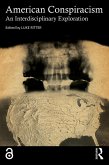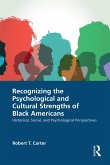Dieser Download kann aus rechtlichen Gründen nur mit Rechnungsadresse in A, B, BG, CY, CZ, D, DK, EW, E, FIN, F, GR, HR, H, IRL, I, LT, L, LR, M, NL, PL, P, R, S, SLO, SK ausgeliefert werden.
Joseph Uscinski, Ph.D., Professor at University of Miami, USA, Author of American Conspiracy Theories (2014) and Editor of Conspiracy Theories and the People Who Believe Them (2018)
"The editor and authors behind this book have conspired to produce a scholarly work of deep importance and insight. Why do people believe conspiracy theories? This collection shows that the answers are as complex as the theories themselves. Rather than setting out to dismiss conspiracism as a collection of crackpot ideas or a contemporary crisis, these essays offer an open-minded and rigorous exploration, charting historical throughlines up to the present. Plenty of light is shed on particular ideas and political moments, from 19th-century anti-Catholicism to the death of Elvis. Yet deeper down the rabbit hole it becomes clear that this kind of interdisciplinary effort offers broader insights into how we come to believe anything, and how we function as a society when information and authorities can't always be trusted. This book is essential reading for anyone who wants to understand American conspiracism in all its complexity and contradictions."
Rob Brotherton, Ph.D., Lecturer at Barnard College, USA, Author of Suspicious Minds: Why We Believe Conspiracy Theories (2015)
"In the past decade, scientists and practitioners increasingly have realized the prevalence and impact of conspiracy theories in contemporary society. This book offers a fresh, out-of-the-box perspective on conspiracy theories in an American context. How do people construct conspiracy theories, what are their effects, how do conspiracy beliefs relate to nationalism, and what do conspiracy theories mean for the people who believe in them? In 15 innovative essays, scholars from across the humanities and social sciences share their views on these important questions. Each author builds their argument around a case study, such as QAnon, Flat Earth belief, the Satanic Panic, the Ku Klux Klan, the Martin Luther King assassination, COVID-19 denial, and many others. This book is a must-read for anyone interested in the causes and consequences of conspiracy theories."
Jan-Willem van Prooijen, Ph.D., Endowed Professor of Radicalization, Extremism, and Conspiracy Thinking, Vrije Universiteit Amsterdam, Netherlands, Author of The Psychology of Conspiracy Theories (2018)









